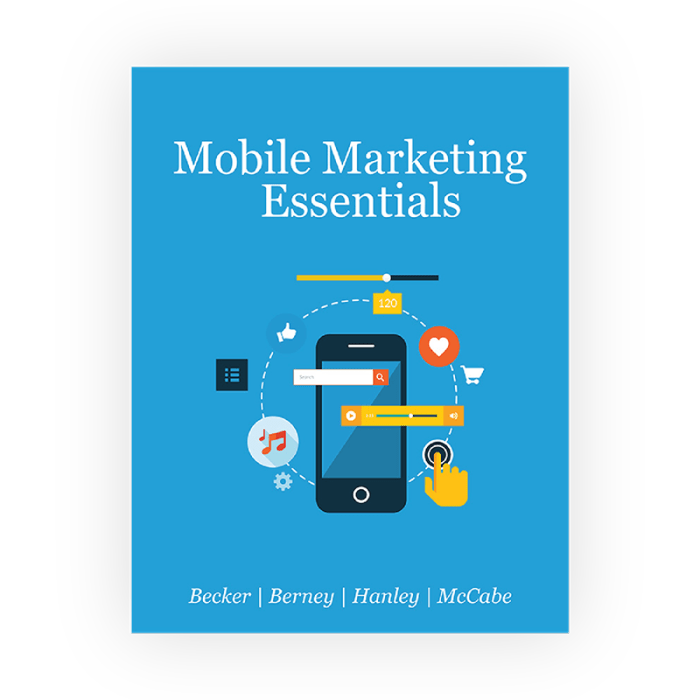Kicking off with Mobile Marketing Essentials, this opening paragraph is designed to captivate and engage the readers, setting the tone for the hip and trendy world of mobile marketing. In today’s fast-paced digital era, understanding the ins and outs of mobile marketing is crucial for businesses looking to stay ahead of the game. From successful campaigns to reaching a wider audience, mobile marketing is the key to unlocking endless possibilities in the palm of your hand.
Importance of Mobile Marketing
Mobile marketing has become increasingly essential in today’s digital landscape due to the widespread use of smartphones and mobile devices. With people spending more time on their phones than ever before, businesses need to adapt their marketing strategies to reach their target audience where they are most active.
Examples of Successful Mobile Marketing Campaigns
- Starbucks’ Mobile App: Starbucks’ mobile app allows customers to order ahead, pay with their phones, and earn rewards. This convenience has led to increased customer loyalty and higher sales.
- Pokémon GO: The popular augmented reality game Pokémon GO used location-based marketing to drive foot traffic to businesses that were designated as PokéStops or Gyms. This increased brand awareness and foot traffic for these businesses.
Reaching a Larger Audience with Mobile Marketing
Mobile marketing has the potential to reach a larger audience compared to traditional marketing methods for several reasons. Firstly, almost everyone owns a mobile device, making it a highly accessible channel to connect with consumers. Additionally, mobile marketing allows for personalized and targeted messaging based on user behavior and preferences, increasing the chances of engagement and conversion.
Strategies for Effective Mobile Marketing: Mobile Marketing Essentials
In today’s digital age, having a strong mobile marketing strategy is essential for businesses to reach their target audience effectively. Let’s explore some best practices and strategies to optimize your mobile marketing efforts.
Optimizing Content for Mobile Devices
- Create concise and engaging content that is easy to read on smaller screens.
- Use clear and compelling visuals to capture the attention of mobile users.
- Optimize website loading speed for faster access on mobile devices.
- Implement mobile-friendly formats such as responsive design and AMP (Accelerated Mobile Pages).
Importance of Responsive Design in Mobile Marketing
Responsive design is crucial for providing a seamless user experience across different devices. It ensures that your website or content adapts to various screen sizes and resolutions, making it easier for users to navigate and engage with your brand.
Leveraging Social Media Platforms for Mobile Marketing Campaigns
- Utilize mobile-friendly social media ads to target mobile users effectively.
- Create engaging and shareable content tailored for mobile consumption on platforms like Instagram, Facebook, and Twitter.
- Use mobile-specific features such as Stories, Live Videos, and Carousel Ads to enhance user engagement.
- Monitor and analyze mobile metrics on social media platforms to optimize your campaigns for better results.
Mobile Techniques
In mobile marketing, plays a crucial role in ensuring that websites are easily discoverable by users searching on their mobile devices. Optimizing websites for mobile search is essential to improve visibility and drive organic traffic. Let’s dive into some tips for effective mobile and explore the differences between for desktop and mobile devices.
Optimizing Websites for Mobile Search
- Ensure your website is mobile-friendly by using responsive design that adapts to different screen sizes.
- Optimize page speed for mobile devices by compressing images, minimizing redirects, and leveraging browser caching.
- Create relevant and engaging content that is easy to read on smaller screens and encourages user engagement.
- Use mobile-friendly s and phrases to improve search engine rankings for mobile searches.
Differences Between for Desktop and Mobile Devices
- Mobile focuses on user experience, with an emphasis on fast loading times and easy navigation.
- Local is more important for mobile devices, as users often search for nearby businesses or services on the go.
- Mobile requires optimizing for voice search and featured snippets, as mobile users often use voice commands for search queries.
- Mobile also considers the context of searches, such as location and intent, to provide more relevant results to users.
Mobile Advertising Platforms

When it comes to mobile marketing, choosing the right advertising platform is crucial for the success of your campaign. Let’s compare and contrast some of the top platforms available and discuss their advantages and disadvantages.
Google Ads, Mobile Marketing Essentials
- Advantages:
- Wide reach with access to millions of websites and apps
- Detailed targeting options based on user behavior and demographics
- Ability to track and measure campaign performance in real-time
- Disadvantages:
- Can be complex to set up and optimize for beginners
- High competition which can drive up costs
- Requires ongoing monitoring and adjustments to maximize ROI
Facebook Ads
- Advantages:
- Precise targeting options based on user interests, behavior, and demographics
- Highly visual ad formats that drive engagement
- Opportunity for retargeting and lookalike audience targeting
- Disadvantages:
- Changes in algorithm and policies can impact ad performance
- Ad fatigue among users due to high frequency of ads
- Requires continuous testing and optimization for best results
Instagram Ads
- Advantages:
- Highly visual platform suited for image and video ads
- Engaged user base with high interaction rates
- Integration with Facebook Ads Manager for seamless campaign management
- Disadvantages:
- Limited targeting options compared to other platforms
- Can be expensive, especially for businesses operating on a tight budget
- Requires compelling and visually appealing creative to stand out
Mobile Analytics and Measurement

Mobile analytics and measurement are crucial components of any successful mobile marketing strategy. By tracking and analyzing data, businesses can gain valuable insights into the effectiveness of their mobile campaigns, understand user behavior, and make data-driven decisions to optimize their marketing efforts.
Key Metrics to Monitor in Mobile Marketing Campaigns
- App Downloads: Tracking the number of downloads can indicate the popularity and reach of your mobile app.
- Conversion Rate: Monitoring the percentage of users who take a desired action, such as making a purchase or signing up for a service, can help determine the effectiveness of your campaigns.
- Retention Rate: Understanding how many users continue to engage with your app or mobile site over time can provide insights into user satisfaction and loyalty.
- Click-Through Rate (CTR): Monitoring the CTR of your mobile ads can help assess the performance of your advertising campaigns.
- Customer Lifetime Value (CLV): Calculating the CLV of mobile users can help determine the long-term value of acquiring and retaining customers through mobile marketing.
Tools and Resources for Measuring the Success of Mobile Marketing Efforts
- Google Analytics: A powerful tool for tracking and analyzing mobile traffic, user behavior, and conversion data on your website or app.
- Mobile App Analytics Platforms: Platforms like Firebase Analytics or Flurry Analytics provide in-depth insights into app usage, user engagement, and retention metrics.
- Heatmaps and Session Recording Tools: Tools like Hotjar or Crazy Egg can help visualize user interactions on mobile sites and apps, providing valuable insights for optimization.
- A/B Testing Tools: Platforms like Optimizely or VWO allow businesses to test different variations of mobile marketing campaigns to identify the most effective strategies.
- Mobile Attribution Platforms: Tools like AppsFlyer or Adjust help businesses track and attribute mobile app installations and user actions to specific marketing channels.
